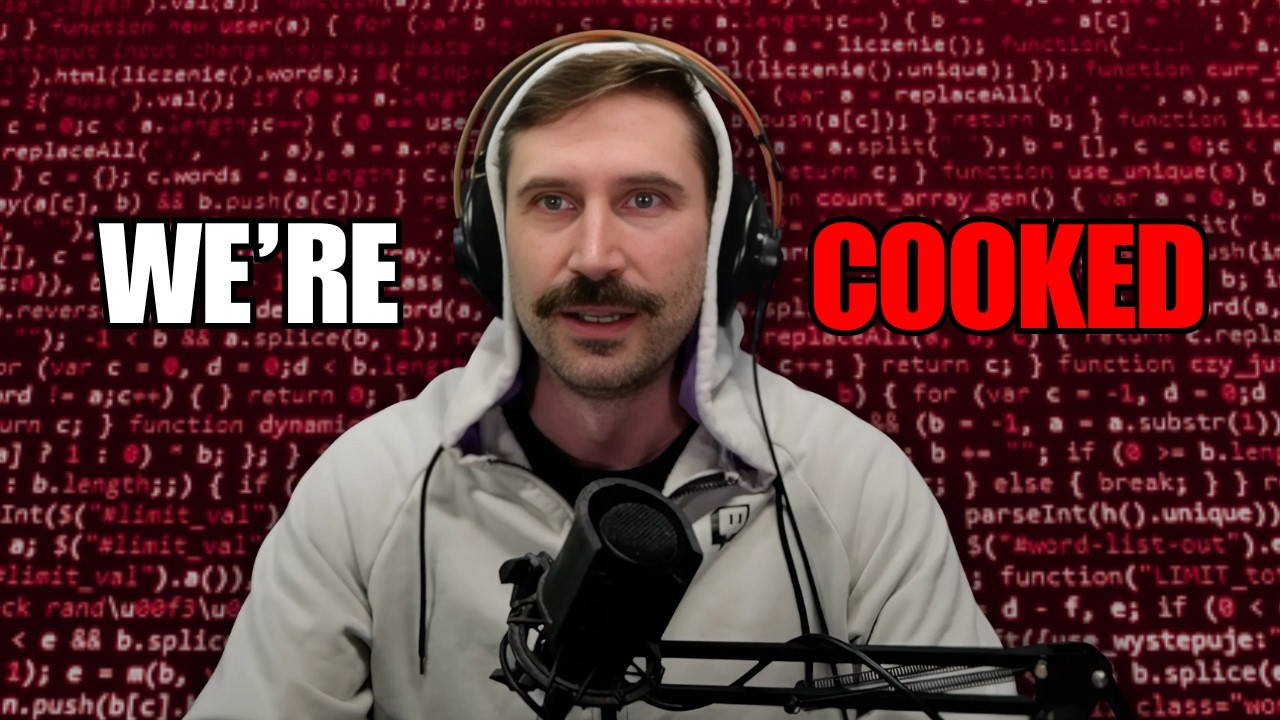The video emphasizes the importance for students and new engineers to proactively develop their skills in the face of AI’s growing influence on the job market, warning against over-reliance on AI tools that could undermine critical thinking and problem-solving abilities. The speaker advocates for a balanced approach that combines leveraging AI with a strong foundation in software engineering principles to ensure adaptability and success in the evolving tech landscape.
The video discusses the impact of artificial intelligence (AI) on the job market, particularly for students and new engineers entering the workforce. The speaker expresses a mix of excitement and skepticism about the claims that AI will revolutionize the industry, emphasizing that while AI tools like coding assistants can enhance productivity, they may also create a false sense of security for those who rely on them without developing their own skills. The speaker warns that students must take proactive steps to learn and adapt to the evolving landscape, or risk being left behind.
The speaker recounts a conversation with a student who expressed concerns about the future job market and the potential for AI to replace entry-level positions. The speaker reflects on the cyclical nature of the tech industry, drawing parallels between past economic downturns and the current state of AI adoption. They argue that while AI can automate certain tasks, it cannot replace the critical thinking and problem-solving skills that come from hands-on experience and deep understanding of the field.
As the discussion progresses, the speaker emphasizes the importance of foundational skills that universities often overlook. They encourage students to engage in practical projects, learn about software development processes, and understand the business implications of their work. The speaker suggests that students should not only focus on coding but also on developing a holistic understanding of software engineering, including testing, deployment, and collaboration with peers.
The video also touches on the potential pitfalls of relying too heavily on AI tools. The speaker warns that while these tools can increase efficiency, they may also lead to a decline in critical thinking and problem-solving abilities if used as a crutch. They advocate for a balanced approach, where students leverage AI to enhance their work while still prioritizing their own learning and skill development.
In conclusion, the speaker reiterates that the future of work in tech will require adaptability and a willingness to learn continuously. They stress that students must take action now to build their skills and knowledge, as the job market will increasingly favor those who can effectively integrate AI into their work without losing sight of the fundamental principles of software engineering. The message is clear: while AI is a powerful tool, it should not replace the need for personal growth and expertise in the field.
